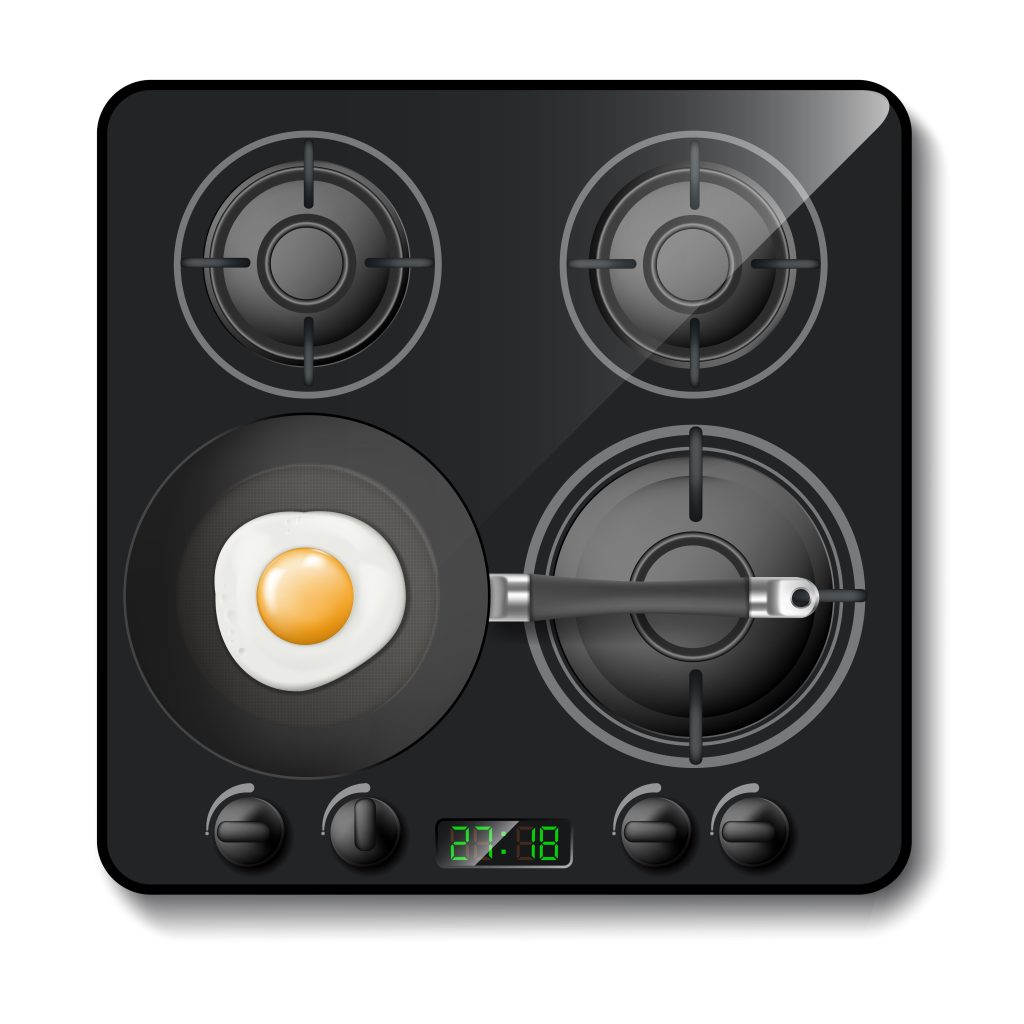
If you’ve ever stood in a professional kitchen, you’ll know one thing for sure: no two chefs agree on the “perfect” piece of kitchen equipment. Some swear by the hiss of gas cooktops; others lean into the cool, clean precision of induction. The truth is, this whole induction vs gas cooktop debate isn’t just about heat — it’s about rhythm, control, and what your kitchen needs to function like a well-rehearsed orchestra.
I’ve cooked on both. I’ve melted sauces over open flames and scorched pans on silent, glowing glass. So, let’s stop dancing around it and actually talk about it.
So Which One’s More Efficient?
This is the part that surprises most people — gas vs induction efficiency isn’t even a close fight. Induction wins by a country mile.
Gas loses most of its energy before it even hits the pan. Flames lick the air, heat escapes sideways, and your kitchen ends up sweating as much as your crew. Induction? It’s sleek, quiet, and laser-focused. It heats the pan and nothing else. Kitchens stay cooler, food cooks faster, and your power bill doesn’t make you wince every month.
Here’s the rough math:
- Induction turns 85–90% of energy into actual cooking heat.
- Gas? Barely hits 40%.
- Bonus: induction doesn’t heat the room, so your A/C gets a break too.
What’s Actually Better to Cook On?
This is where it gets personal. Let’s not pretend induction vs gas cooking pros and cons is black-and-white. It all comes down to what kind of kitchen you’re running and how your chefs like to move.
Induction perks:
- Dead-accurate temperature control.
- Zero flames — much safer when the rush hits.
- Easy cleanup. Flat surface, no burners to scrub.
Induction pain points:
- Needs compatible cookware. Forget your copper-bottom pans.
- Costs more upfront. Not cheap gear.
Gas strengths:
- Flame means visual control — you see the heat.
- Any pot, any pan — throw it on, it works.
- Cheaper to install in most places.
Gas drawbacks:
- It’s hot. Like, really hot to work around.
- Way less efficient. You’re paying for lost heat.
Chefs Talk About Control, Not Just Heat
Ask around — is an induction stove better than gas for pro chefs? Depends on the chef. Personally, if I’m banging out twenty orders of seared duck breast, I want induction. It’s fast, stable, and consistent. There’s no room for guesswork in a packed dinner rush.
But if we’re talking handmade tortillas or wok cooking with flames flying high, gas still owns that space. Some techniques just love fire.
The Money Talk: Is Induction Worth It?
Let’s put it bluntly — induction stove vs gas stove cost isn’t pretty at first. You’ll shell out more for the unit, and maybe even new cookware. But here’s the flip side: you’ll make it back. Fast.
Energy bills shrink. Heat-related A/C costs drop. Service issues? Fewer moving parts mean fewer breakdowns.
If you’re thinking long-term — and every serious kitchen should — induction cooking vs gas cost ends up tilting in your favor. And induction cooktop efficiency vs gas is no longer something to debate — it’s proven, tested, and backed by every serious energy audit you’ll find.
So, What’s It Gonna Be?
Which is better — gas or induction stove? It’s the wrong question. Better to ask: what fits your kitchen?
Want speed, energy savings, and a cooler workspace? Go with induction.
Running a high-flame, high-flavor kitchen with traditional roots? Stick with gas.
But if I had to build a new kitchen from scratch today? I’m choosing induction without blinking. It’s smarter. Cleaner. And once you get used to the silence — it’s hard to go back.